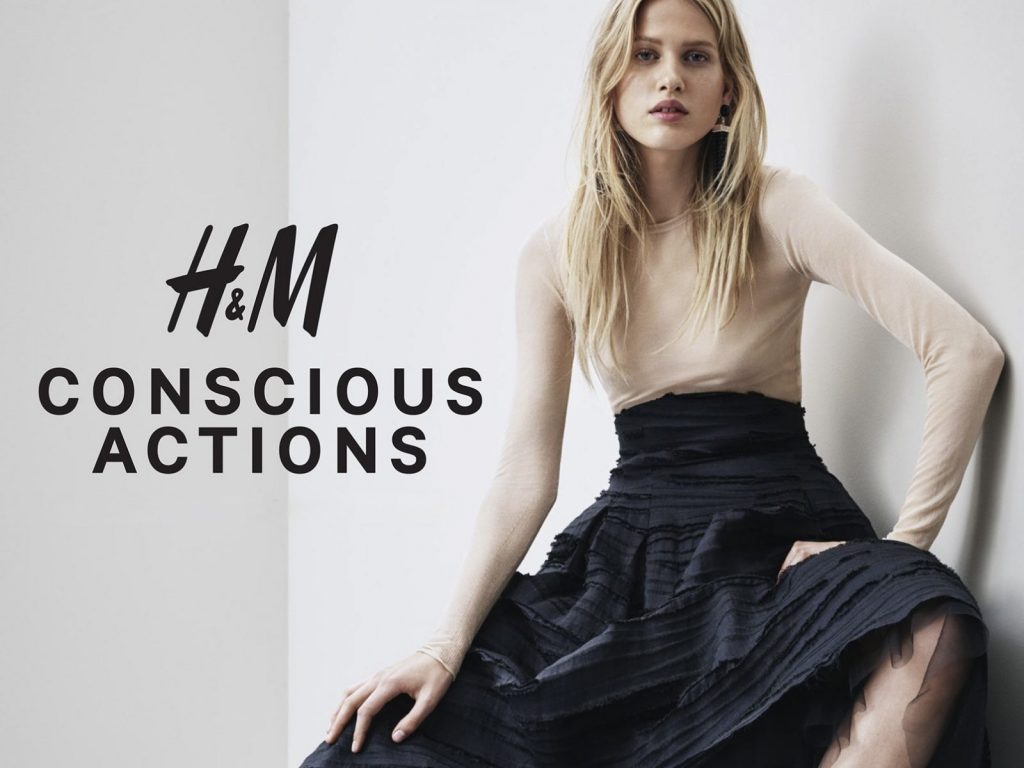Two plaintiffs have dropped the sustainability-centric false advertising lawsuit that they first lodged against H&M for allegedly “misrepresent[ing]” the nature of its products in order to target the growing segment of eco-conscious consumers who are willing to pay more for “sustainably-made” garments and accessories. In a notice lodged with the U.S. District Court for the Southern District of New York on December 13, as first reported by TFL, Plaintiffs Chelsea Commodore and Rakeedha Scarlett alerted the court that they would dismiss their deceptive act or practices and false advertising causes of action under New York General Business Law and unjust enrichment claim with prejudice to bring an end to the case, which centers on the Swedish fast fashion giant’s alleged pattern of “taking advantage of consumers’ interest” in sustainability and products that “do not harm the environment” by way of allegedly falsified “environmental scorecards.”
In the complaint that she filed in July 2022, which was amended early this year to add Scarlett as a named plaintiff, Commodore alleged that H&M created “an extensive marketing scheme to ‘greenwash’ its products” in order to present them “as environmentally-friendly when they are not.” Part of this overarching effort came in the form of its “misleading” environmental scorecards, which are prominently displayed on “green hang tags, in-store signage, and online marketing.” One Sustainability Profile that was marketed by H&M, for example, “claimed that a dress was made with 20% less water on average,” when an independent investigation by news outlet Quartz revealed that the dress “was actually made with 20% more water.”
In addition to its allegedly problematic Sustainability Profiles, Commodore claimed that “H&M makes various other misrepresentations concerning the purportedly sustainable nature of its products,” including that its products are “‘conscious,’ a ‘conscious choice,’ a ‘shortcut to sustainable choices,’ made from ‘sustainable materials,’ ‘close the loop,’ and that H&M will prevent its textiles ‘from going to landfill’ through its recycling program.”
With the foregoing in mind, Commodore argued that H&M was running afoul of New York state law by “misrepresent[ing] the sustainability and attributes of the products to induce consumers to purchase H&M’s products.” Commodore further asserted that H&M “seeks to differentiate itself from other fashion products by greenwashing the products and its brand,” which is “a deceptive act and an unfair practice because [H&M], one of fashion’s greatest polluters, knows that the products are not sustainable and contribute to significant negative environmental harms over the entire product life cycle from cultivation to incineration.”
H&M “adds a significant upcharge” for its “Conscious” products compared to similar products that do not market a Sustainability Profile or Sustainability Misrepresentation, the plaintiffs asserted, arguing that they “could have” – and likely would have – “purchased comparable item[s] offered for less by a competing retailer or by H&M itself.”
Another Suit Down for H&M
The apparent settlement between H&M, Commodore, and Scareltt comes several months after H&M beat a proposed class action lawsuit waged against it over its alleged efforts to greenwash its fast fashion wares. By marketing its Conscious Collection products as “more sustainable” or “more environmentally friendly” than its other products, Plaintiffs Mark Doten and Abraham Lizama argued in the suit they filed against H&M last year that the apparel retailer was running afoul of California and Missouri state laws. In particular, they took issue with H&’s advertising of its Conscious Choice garments as being made from “more sustainable materials,” namely, a certain percentage of organic cotton and recycled polyester, and therefore, amounting to “its most sustainable products.”
In an order in May, Judge Rodney Sippel of the U.S. District Court for the Eastern District of Missouri sided with the Swedish fast fashion giant, dismissing Doten’s claims due to a lack of personal jurisdiction, and Lizama’s causes of action for failure to adequately plead his claims against H&M. On the latter front, the court held that “no reasonable consumer” would understand H&M’s representations to mean that the Conscious Choice line is “inherently ‘sustainable’ or that H&M’s clothing is ‘environmentally friendly’ when neither of those representations were ever made.” Instead, the court held that “only reasonable reading of H&M’s advertisements is that the Conscious Collection uses materials that are more sustainable than its regular materials.”
A Year in Sustainability Suits
The lawsuits waged against H&M are part of a growing string of sustainability-centric false advertising litigation. “Like other false advertising claims, the plaintiffs [in this realm] have employed statutory claims under various state consumer protection laws, as well as common law claims of fraud, misrepresentation and unjust enrichment to attack sustainability claims in the courts,” Hunton Andrews Kurth LLP’s Leslie Kostyshak stated in a recent note, pointing to “greenwashing” suits that have also been lodged against the likes of Keurig and Coca-Cola as other examples.
Mintz’s Jacob Hupart, Douglas Baumstein, Joshua Briones, and Will McKitterick asserted in a note of their own that most of the recent greenwashing class-action cases rely on both common law and state statutory causes of action. “The common law claims frequently include allegations of fraud, misrepresentation, unjust enrichment, deceit, and breach of express warranty,” while the state statutory causes of action “make use provisions of in state consumer protection laws that enable private plaintiffs to bring class action claims for violations of those statutes,” including New York’s General Business Law §§349-50 and California’s Consumer Legal Remedies Act, False Advertising Law, and Unfair Competition Law.
At a high level, Kostyshak says that parties should be aware that under most state laws governing false and misleading advertising, “courts look to whether a reasonable consumer may be misled by the allegedly false claim,” noting that in the greenwashing context, “the contours of this standard are still being determined.” Beyond that, in the false advertising context, she states that “courts applying the reasonable consumer standard look carefully to the claims that were actually made,” which weighed in H&M’s favor in the Lizama case, for instance. (In that case, the court explicitly stated that “it is important to note the statements [H&M] did not make.” With that in mind, the court found that while Lizama “repeatedly uses the phrase ‘environmentally friendly’ in the complaint,” H&M “never actually claims that its Conscious collection items are ‘environmentally friendly.’”)
In terms of the outcome of such suits, the Mintz attorneys stated this summer that “a significant number of these class-action cases have survived initial motions to dismiss,” which signals that “courts are seriously considering these claims – and that potential defendants should also consider seriously the prospect of such greenwashing lawsuits.” More broadly, the note that plaintiffs are targeting such advertising and marketing as “greenwashing,” alleging that “many companies are misrepresenting the environmental impacts of their products to attract environmentally conscious consumers.”
In light of the potentially serious consequences of facing greenwashing allegations, including “significant financial exposure and potential[ly] long-lasting reputational harm,” companies marketing themselves and/or their products in ways that bring sustainability into the fold are encouraged to keep such suits in mind when considering whether and how to advertise their “green” products and/or initiatives.
The case is Commodore v. H&M Hennes & Mauritz LP, 7:22-cv-06247 (SDNY).











